Transitioning from high school to college marks a significant milestone in one’s life. It’s a time filled with excitement, anticipation, and a little bit of nervousness. The shift from the structured environment of high school to the newfound freedom of college can be both exhilarating and challenging. With this transition comes many opportunities and responsibilities that pave the way for personal growth and development. At Impact Christian Academy, we help prepare our scholars for a successful college journey by not only providing a rigorous academic environment, but also by instilling Christian values through our mission of equipping students to embrace biblical truth, strive for academic excellence, and model Christ-like leadership to impact their homes, churches, and communities for Christ.
The increased sense of freedom is one of the most noticeable changes when entering college. No longer bound by rigid schedules and constant supervision, college offers students the chance to explore their interests, passions, and identities in a more independent setting. From choosing their classes to managing their own time, students have the autonomy to shape their college experience according to their preferences and goals.
However, with greater freedom comes greater responsibility. In college, students are expected to take ownership of their education and actively engage with course material. Unlike high school, where teachers may closely monitor progress and provide frequent reminders, college courses move at a faster pace and require students to stay on top of their assignments and readings. Keeping up with the material through regular studying and note-taking is essential for success in college.
Effective time management is another crucial skill for transitioning from high school to college. With multiple classes, extracurricular activities, and social commitments vying for attention, planning and working strategically can help students stay organized and avoid last-minute rushes. Creating a schedule, breaking tasks into manageable chunks, and setting aside dedicated time for studying can alleviate stress and ensure that deadlines are met.
In addition to academic transitions, college also presents opportunities for social growth and exploration. Engaging in activities such as networking events, intramural sports, and joining clubs can help students connect with peers who share similar interests and expand their social circles. Building relationships and forming connections both inside and outside the classroom can enrich the college experience and contribute to personal development. At ICA, we help prepare our students to be well-rounded by focusing on four core areas – academics, arts, altruism and athletics.
Students need to make use of the resources available to them on campus. Whether it’s seeking help from professors during office hours, consulting academic advisors for guidance, or accessing support services such as tutoring and counseling, there are numerous avenues for assistance and support. Recognizing when help is needed and reaching out proactively can make the transition to college smoother and more manageable.
In conclusion, transitioning from high school to college is a transformative journey filled with new experiences, challenges, and growth opportunities. By staying organized, managing time effectively, and actively engaging with both academic and social aspects of college life, students can navigate this transition successfully and thrive in their new environment. With the right mindset and approach, the college years can be a time of self-discovery, learning, and personal development.


